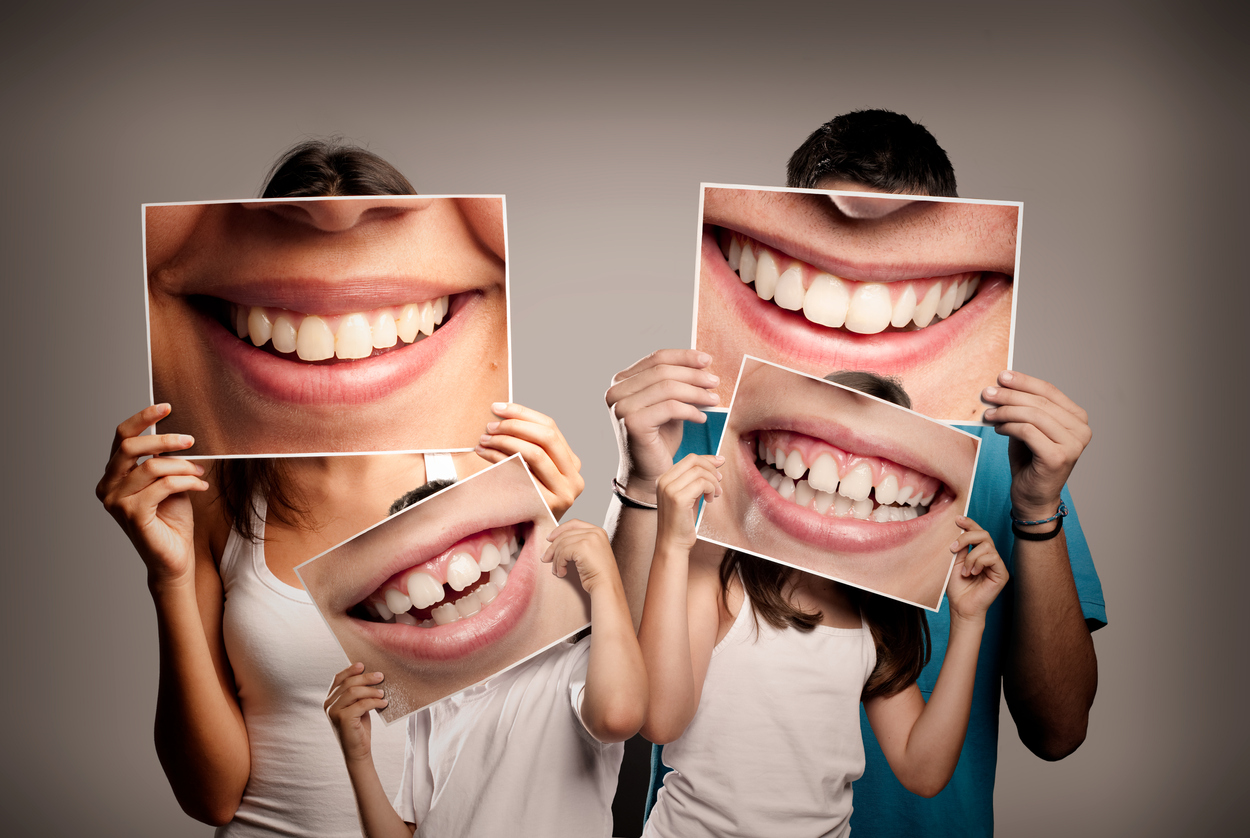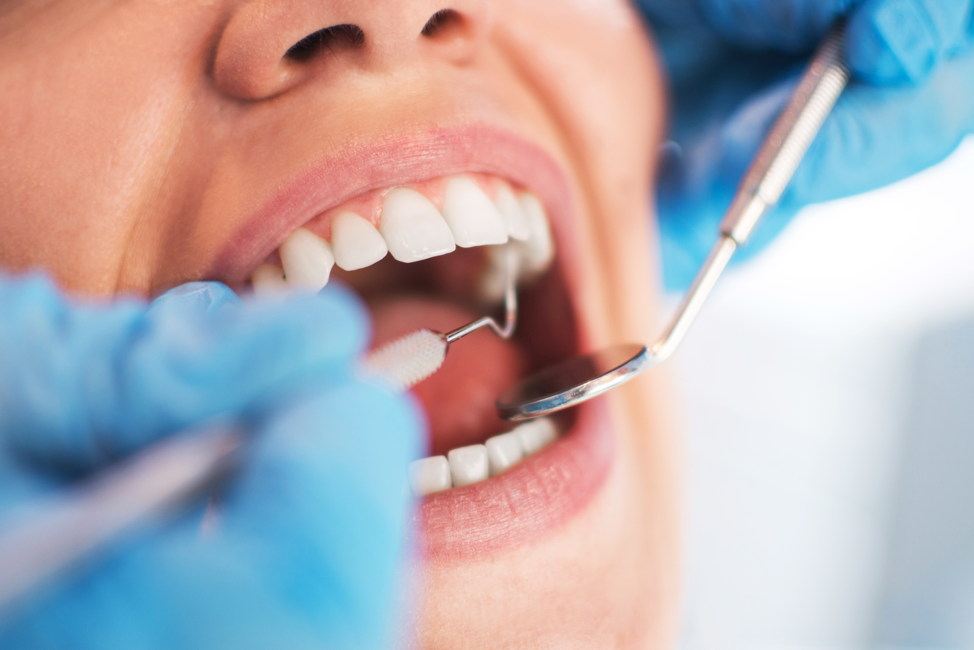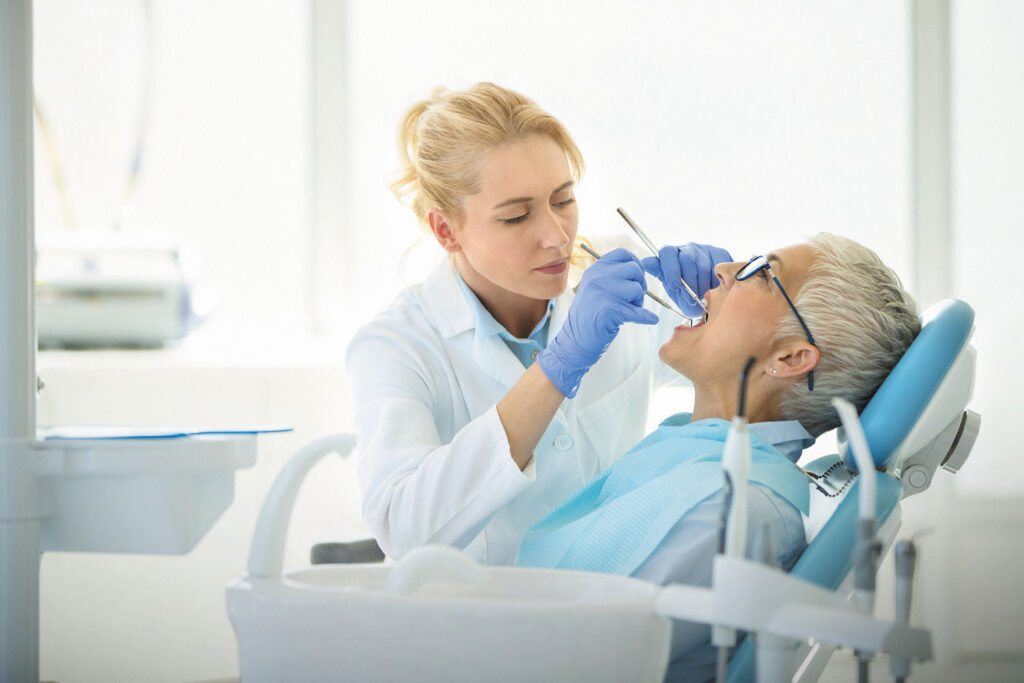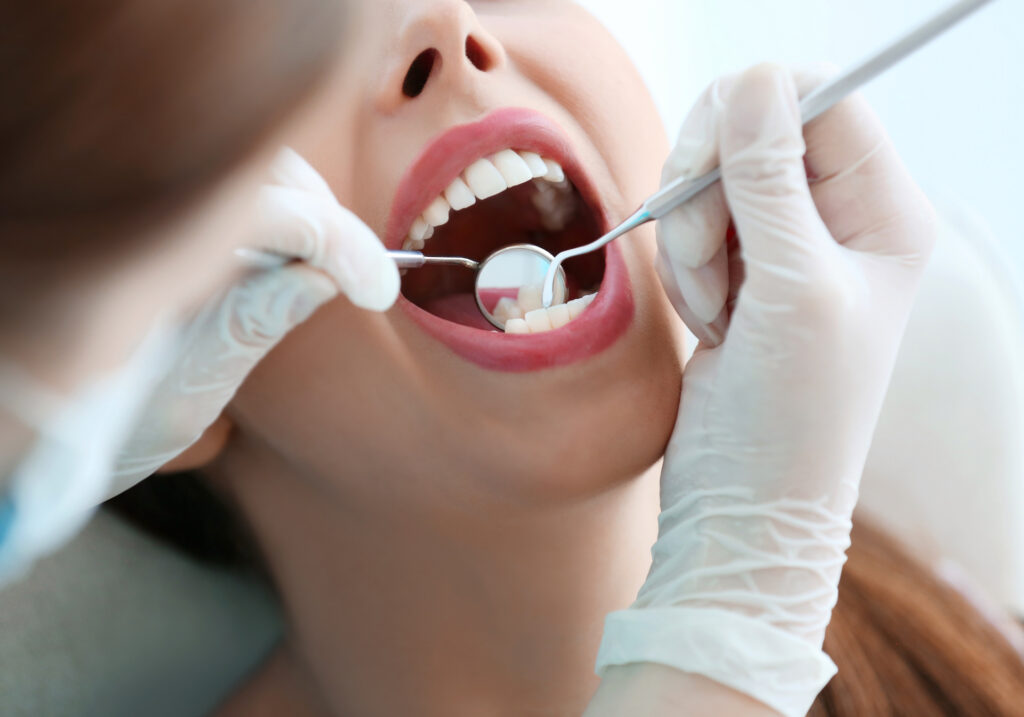Oral Health At Every Age: Dental Care Tips For Children, Adults, And Seniors

Oral health is a crucial aspect of overall well-being that can’t be overlooked at any stage of life. From the first tooth that peeks through a baby’s gums to the dental care challenges seniors face, maintaining healthy teeth and gums is essential for everyone.
Oral care needs evolve through different stages of life due to biological changes, dietary habits, and the cumulative effects of health practices over time. In childhood, preventive care and education set the foundation for lifelong oral health, focusing on proper brushing techniques and managing baby teeth to pave the way for healthy adult teeth.
As adults, the emphasis shifts to maintaining oral health through preventing and treating gum disease and tooth decay and managing the impact of lifestyle choices. At the same time, seniors face unique challenges such as dry mouth, wear and tear of dental materials, and the need for specialized care for natural teeth or dentures.
This comprehensive guide offers dental care tips tailored for children, adults, and seniors, ensuring your smile stays bright and healthy through all phases of life. Read on to learn more.
Dental care for children

- Early beginnings: The journey to good oral health starts early. Even before the first tooth appears, gently clean your baby’s gums with a soft, damp cloth after feeding. Doing so helps prevent bacteria buildup.
- First tooth, first visit: Schedule your baby’s first dental visit after their first tooth appears and no later than their first birthday. Early visits can help prevent dental problems and familiarise your child with the dentist.
- Brushing and flossing: Teach your child to brush twice daily with fluoride toothpaste and floss regularly. Supervise their brushing to ensure they use a pea-sized amount of toothpaste and avoid swallowing it.
- Healthy diet, healthy teeth: Limit sugary snacks and drinks to protect your child’s teeth from decay. Encourage a diet rich in vegetables, fruits, and water to promote oral health.
Dental care for adults

For adults, maintaining oral health helps ensure overall well-being and prevents the need for extensive dental work. Here are essential dental care tips aimed at helping adults keep their teeth and gums healthy:
- Brush and floss regularly: Brush your teeth at least twice daily with fluoride toothpaste, and remember to floss daily. This basic routine removes plaque, a sticky film of bacteria that can cause tooth decay and gum disease.
- Make sure to attend dental checkups: Regular dental visits for cleanings and checkups are crucial. Your dentist can catch problems early, such as cavities, gum disease, and even signs of oral cancer. Adults should see a dentist every six months or as recommended.
- Eat a balanced diet: Your diet significantly impacts oral health. Limit sugary snacks and acidic drinks that can erode tooth enamel and lead to decay. Instead, focus on a balanced diet of fruits, vegetables, lean proteins, and whole grains to support healthy gums and teeth.
- Stay hydrated: Drinking plenty of water helps keep your mouth clean, encourages saliva production, and can help wash away food particles and bacteria.
- Quit tobacco use: Smoking or using tobacco products can increase the risk of gum disease, tooth decay, and oral cancer. Quitting tobacco use can significantly reduce these risks.
- Limit alcohol consumption: Excessive alcohol consumption can dry out your mouth and increase your risk of oral cancer. Moderation and regular dental checkups, including screenings for oral health issues, are critical.
- Be aware of medication side effects: Some medications can affect oral health, such as causing dry mouth or gum overgrowth. If you’re starting a new medication, ask your doctor or pharmacist about any potential impacts on oral health.
- Address grinding and clenching: Many adults grind their teeth or clench their jaws, especially during sleep. It can lead to tooth damage, jaw pain, and headaches. Your dentist can recommend a custom night guard to protect your teeth if this is a concern.
Incorporating these dental care practices into your daily routine can help ensure that your teeth and gums remain healthy well into your later years. Remember, preventive care is the most effective and affordable way to maintain oral health.
Dental care for seniors

For many seniors, aging may bring unique dental challenges, including dry mouth, wear and tear on teeth, and existing health conditions that affect oral health. Dental care for seniors is critical because aging can increase the risk of oral health issues, such as gum disease, tooth decay, and tooth loss.
Seniors must pay extra attention to their oral care routine. Here are some essential dental care tips tailored for seniors:
- Maintain daily oral hygiene: Brushing twice daily with fluoride toothpaste and flossing are fundamental to oral hygiene. For seniors with arthritis or other conditions that make brushing difficult, consider using an electric toothbrush or adaptive aids.
- Stay hydrated: Dry mouth is a common problem among seniors, often as a side effect of medications. Saliva is essential for neutralizing acids and helping to prevent decay and gum disease. Drinking water, chewing sugar-free gum, or using a saliva substitute can help alleviate dry mouth symptoms.
- Regular dental checkups: Continue with regular dental visits, even if you have dentures. Dental checkups are crucial for detecting problems early, such as gum disease, oral cancer, and issues related to dentures.
- Care for dentures: For seniors with dentures, proper care is essential. Clean them daily to remove food particles and plaque, and ensure they fit correctly to avoid discomfort and oral sores.
- Mind your diet: A healthy diet is vital for good oral health. Eat a balanced diet of fruits, vegetables, lean proteins, and low-fat dairy. Limit sugary and acidic foods that can contribute to tooth decay.
- Address gum disease: Gum is a leading cause of tooth loss in older adults. Pay attention to signs of gum disease, such as red, swollen, or bleeding gums, and consult your dentist if these symptoms occur.
- Oral cancer screening: Seniors are at increased risk for oral cancer. Regular dental checkups should include screenings for oral cancer, which can help detect it early when it’s more treatable.
By following these tips, seniors can maintain their oral health, ensuring a better quality of life and the ability to enjoy their favourite foods without discomfort.
Dental checkup expectations

Regardless of age, knowing what to expect during a dental checkup can help reduce anxiety and prepare you for a smooth visit. To help set your dental checkup expectations before your visit, here’s a quick rundown of what happens.
During a checkup, your dentist will:
- Examine your teeth, gums, and mouth for signs of decay, gum disease, and other health issues.
- Perform a cleaning to remove plaque and tartar that regular brushing can’t reach.
- Discuss your oral hygiene habits and provide advice on improving them.
- If necessary, plan future treatments, such as fillings, crowns, or orthodontic work.
Regular dental checkups are an opportunity to address dental concerns early and maintain good oral health throughout your life.
Conclusion
Oral health is vital to overall health and well-being at every age. By adopting appropriate dental care practices for children, adults, and seniors and understanding what to expect from dental checkups, individuals can ensure that their teeth remain healthy and strong for years to come. Remember, a healthy smile is a beautiful smile!




